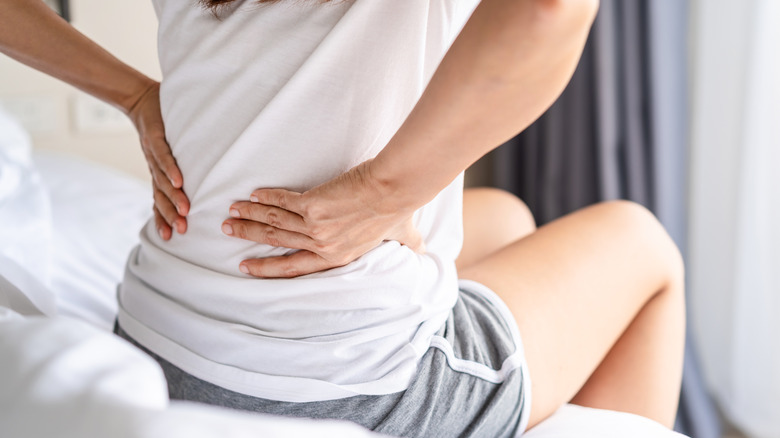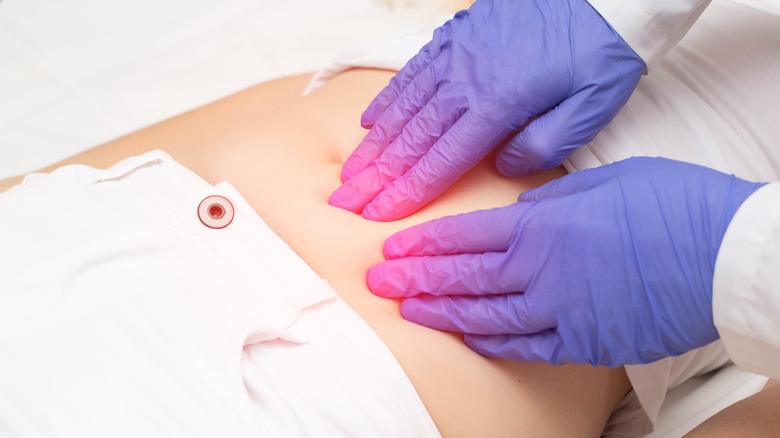Why You Might Experience Back Pain When You Have An Ovarian Cyst
Although they can occasionally be uncomfortable, ovarian cysts are generally nothing to be concerned about (via Eve Medical). An ovarian cyst is a sac filled with fluid that can form on the ovaries of women who are ovulating. Most ovarian cysts, called functional cysts, are caused by menstruation, according to the Mayo Clinic. During ovulation, the ovary releases a follicle, which contains an egg. As the follicle opens, the egg is released. However, in some cases, the follicle does not open and continues to grow. This is what is known as a follicular cyst, and is fairly common. In other cases, when the follicle does open, it becomes what is called the corpus luteum. If this becomes stuck in the ovary, it can form what is called a corpus luteum cyst.
In many instances, Cleveland Clinic notes, ovarian cysts will not cause any trouble. However, if you have a cyst that is bigger, it can lead to feelings of being bloated, discomfort during menstruation, and pain during sex. In some cases, a cyst can rupture, which can lead to more severe pain. You can experience this pain in your pelvic region or, at times, in your back.
Larger cysts can cause pain
A 2019 study published in the Egyptian Journal of Radiology and Nuclear Medicine reviewed MRI findings of 400 patients who experienced pain in their lower back. Of those, 90 patients had pain that was not spine-related. Out of those 90 patients, a little over half of them consisted of ovary-related pain stemming from simpler or complex cysts, even a mass on the ovary.
In general, ovarian cysts range from one to three centimeters in diameter (via Healthline). However, they can grow larger, even up to 12 inches in diameter. When it expands, the cyst can put pressure on your organs, leading to back pain. Occasionally, according to Johns Hopkins Medicine, a cyst can rupture, which can also cause back pain. While it may sound serious, a ruptured cyst isn't necessarily a cause for concern. But, if your pain is accompanied by other symptoms, such as fever, vaginal bleeding, or vomiting, you should seek medical attention immediately.
Most cysts will go away without treatment (via Cleveland Clinic), and your doctor will recommend that you watch your symptoms and wait for the cyst to dissipate on its own. He or she may also put you on hormone-based medications, such as birth control, to help stop the formation of cysts. In more serious cases, surgery may be required. It's always advisable to listen to your body when you feel a cyst form and, if your symptoms become more serious, to see your doctor as quickly as possible.


